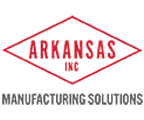By Rudy Ortiz, AEDC-MS Cybersecurity
In Sept of 2018, the USTR released List 3 of Section 301 which contained those items coming from China that would incur a 25% tariff upon arrival to the U.S.
Obviously, this tariff has negatively impacted U.S. businesses significantly, especially those that were unaware of the tariff and/or had no means to pass the cost of the tariff on to their customers.
The HTS codes of these items start at 0203.29.20 and end at 9706.00.00; a huge number of items covering everything from various kinds of meat to antiques.
At the time List 3 was released, no process was established by the USTR for a company to request a product Exclusion or Exemption. Finally, in June of 2019, a process for this was put into place by the USTR.
The deadline for requesting a product Exclusion ends on September 30th, 2019 at which time no additional requests will be considered.
You have approximately 2 weeks before the deadline to submit your request. The link to request an Exclusion follows: https://exclusions.ustr.gov/s/login/?startURL=%2Fs%2F&ec=302
As you develop your request, please keep in mind the following USTR “Ground Rules”:
Exclusions vs Exemptions
I think it will be useful to spell out some nomenclature before we start. When one talks about seeking product Exclusions (as opposed to an Exemption – more on that later), it means that an argument is being made as to why a category of products (under a particular HTS code) should be entirely excluded from a certain undesirable tariff status.
On the other hand, an Exemption is a request by you as to why your company should not have to pay the tariff on a product that has not received an Exclusion.
There are 3 reasons why one might receive an Exemption from the tariff and you have to be able to answer NO to at least one of the 3. The more No’s, the better your chances. The questions are:
1. Can you buy this product elsewhere? If you answer Yes, that is a (- ) mark against you. If you answer No, it is a + mark for you.
2. Can you buy this product in the quantity or quality you need? It could be that Yes, you can buy the product elsewhere but due to the product being a specialty item, it is made in limited amounts elsewhere or the quality that can be had elsewhere would not meet your required specifications. Again, if you answer Yes it is another (-) mark against you. If the answer is No, it is a + mark in your favor.
3. Can you buy this product in a timely fashion? It could be that Yes, you can buy it elsewhere and Yes you can buy it in the quantity or quality you need BUT because it is a specialty item, it will take 12 months to get the item from the other source at which time you will be out of business. Again, if you answer Yes, it is a (-) mark against you. If you answer No, it is a + mark for you.
Please understand that if you answer NO to any of these questions, the burden of proof will be on you to prove itto the USTR.
Additional guidance from the USTR:
The USTR will evaluate each exclusion request based on several considerations, including whether the product is only available from China; whether a comparable product is available in the United States or from a third country; whether the party requesting the exclusion has tried to source the product from the United States or a third country; whether the imposition of the Section 301 tariff will cause “severe economic harm” to the party requesting the exclusion; and whether the product is strategically important to China.
Make sure you consider all these things as you request an Exemption. Have someone other than yourself re-read the request for clarity. You only have one shot at this so make sure it is clear and follows the “rules” I and the USTR have provided.
Rudy Ortiz
